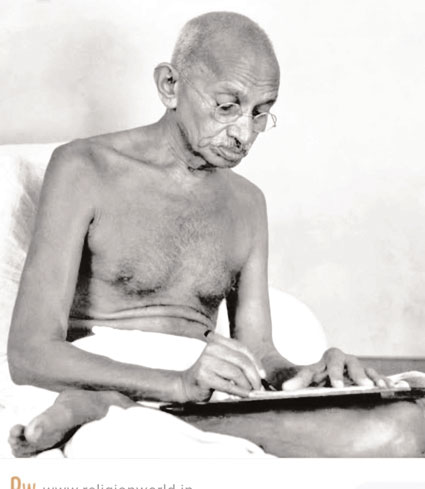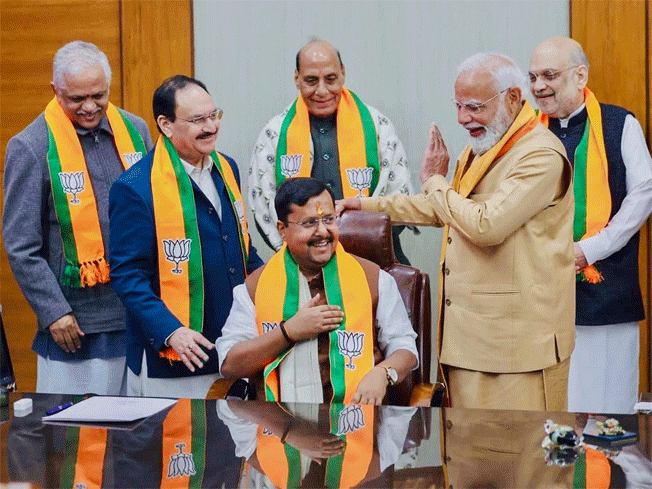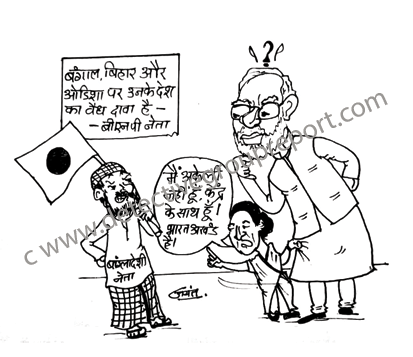Gandhiji's Basic Education was the practical embodiment of his philosophy of education. His basic education takes up the challenging task of preparing the young learners to become morally sound, individually independents, socially constructive, economically productive and responsible future citizens which can prove helpful in solving the problem of unemployment by making youth self-employed by giving them skill training. Gandhiji believed that education should develop all the capacities of the child so that he becomes a complete human being. In this way, fully and harmoniously developed personality is able to realize the ultimate aim of life which is Truth or God. Gandhiji has himself explained - "By education I mean all-round drawing out of the best in child's and man's body, mind and spirit. Literacy is neither the beginning nor the end of education. This is only a means through which man or woman can be educated." His Basic Principles of Education includes:-
From seven to fourteen years of age, education of each child should be free, compulsory and universal.
The medium of instruction should be mother-tongue.
Mere literacy cannot be equated with education. Education should employ some craft as a medium of education so that the child gains economic self-reliance for his life.
Education should develop human values in the child.
Education should create useful, responsible and dynamic citizens. By education all the hidden powers of child should develop according to the community of which he is an integral part.
Education should achieve the harmonious development of child's body, mind, heart and soul.
All education should be imparted through some productive craft or industry and a useful correlation should be established with that industry. The industry should be such that the child is able to achieve gainful work experience through practical work.
Education should be made self-supporting through some productive work. Education should lead to economic independence and self-reliance for livelihood.
Thus, in Gandhiji's educational thoughts the development of the personality of child is more important than mere literacy or knowledge of different subjects. In other words he believed in life-centered as well as child-centered education. Besides learning of three R's Reading, Writing and Arithmetic in school, he insisted on development of these H's Hand, Heart and Head. Thus, the aim of Education should be of developing the integrated personality of the child.
Gandhiji was having clarity in the idea that one of the basic principles of education is that work and knowledge must never be separated. Separation of learning from labor results in social injustices. In dynamic societies, education has to equip individuals with the skills and attitudes necessary for them to adapt to changing conditions, and for constructive participation in the task of social change. This can prove helpful in solving the problems of frustration, depression, anxiety and feeling of committing suicide among youth.
According to Gandhiji through education a child must be able to learn a productive craft to meet his future needs of life by adopting some industry or business. Hence, he advocated education for self-reliance and capacity to earn one's livelihood as the main aim of education. By this aim he did mean to make the child a laborer but wished that each child should earn while engaged in learning and gain some learning as he is busy with earning. He advocated that together with vocational education cultural advancement should also be achieved. The two aspects of development should go together side by side.
Gandhiji insisted that education should develop all aspects of individuality harmoniously. He also believed that one of the essential aims of education is the moral development or character development. Gandhiji wishes that every child should grow into a divine human being by realizing Godliness in his self. Gandhiji himself writes. "To develop the self is to build character and to prepare the self for complete realization and realization of Godliness.
Gandhiji's ‘Basic Education' was job centered, value based and mass oriented. Here it is important to note that these are still the important requirements of education in our country. In his scheme of education, knowledge must be related to activity and practical experiences. Therefore his curriculum is activity centered. Its aim is to prepare the child for practical work, conduct experiments and do research so that he is able to develop himself physically, mentally and spiritually and become a useful member of society. In this activity-centered curriculum, Gandhiji included Mother-tongue, Basic Craft, Arithmetic, Sociology, General Science, Art, Music and other like subjects. He further advocated that curriculum for boys and girls from classes 1 to 5 should be the same. After that boys should be taught some Craft and girls should study Home-Science. It should be noted that Gandhiji's scheme of Basic Education is limited to primary and junior stages only.
Gandhiji also insisted that his scheme for primary education would include "the elementary principles of sanitation, hygiene, nutrition," besides "compulsory physical training through musical drill. Gandhiji argues that his scheme would make students strong, confident and useful to their parents and their country. Gandhiji adds that his system would lead to communal harmony because it would be the same for all; it would this be "practical religion, the religion of self help".
Gandhiji disapproved rote learning educational methods and considered it as defective and emphasized to make crafts and vocations as means of education. He wished that some local craft should be made as medium of education for children so that they develop their body, mind and soul in a harmonious way and also meet the ends needs to their future life. In this way, Gandhiji's method of teaching was therefore, different from the current one. He emphasized the importance of the following principles in his method of teaching:-
To achieve mental development, training of senses and parts of the body should be given.
Reading should precede the teaching of writing.
More opportunities should be given for learning by doing.
Encouragement should be given to learning by experience.
Correlation should be established in the teaching methods and learning experiences.









